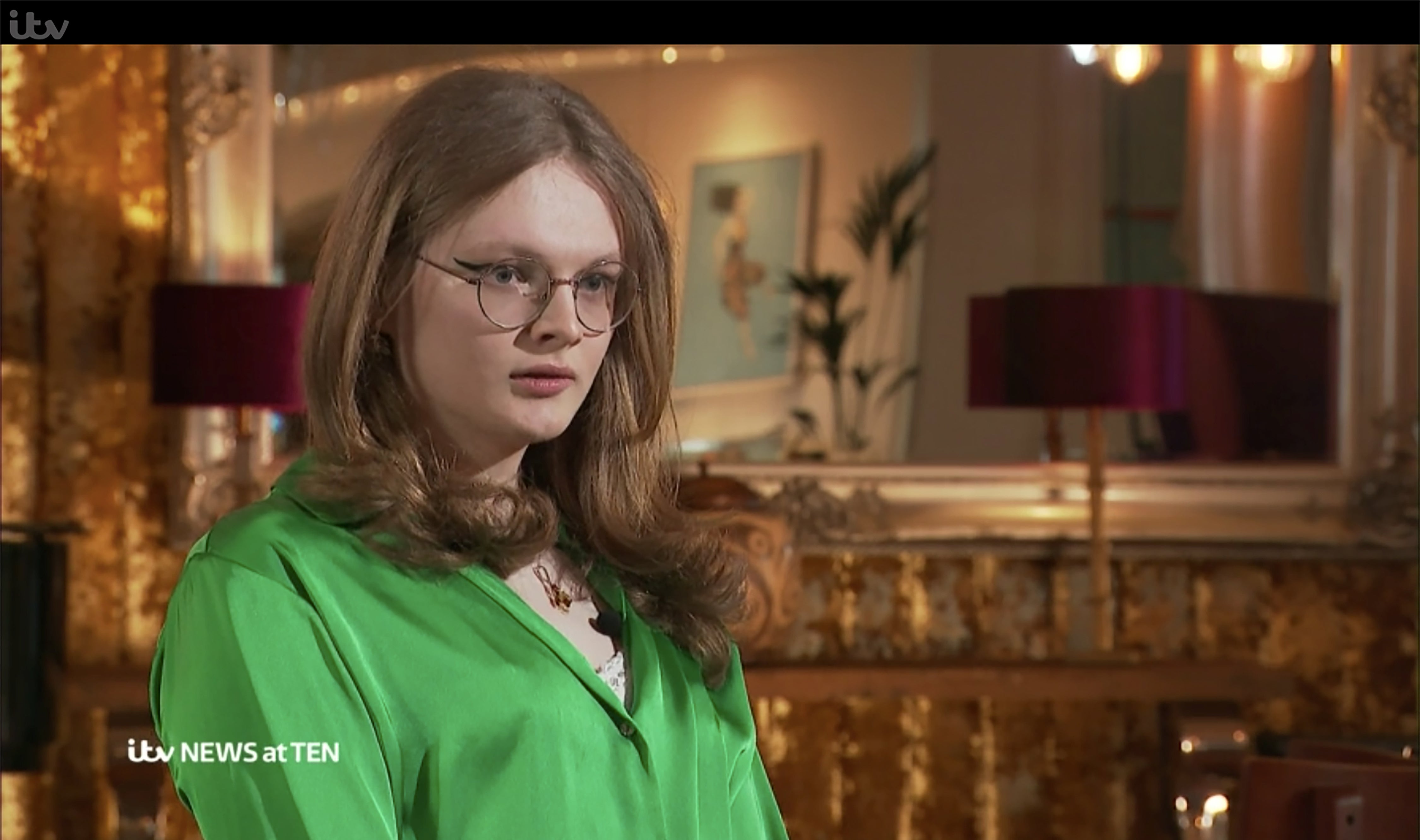Emily Bridges reveals Boris Johnson remarks resulted in wave of violent threats
When asked about the transgender cyclist, the Prime Minister stated: “I don’t think biological males should be competing in female sporting events.”

Your support helps us to tell the story
From reproductive rights to climate change to Big Tech, The Independent is on the ground when the story is developing. Whether it's investigating the financials of Elon Musk's pro-Trump PAC or producing our latest documentary, 'The A Word', which shines a light on the American women fighting for reproductive rights, we know how important it is to parse out the facts from the messaging.
At such a critical moment in US history, we need reporters on the ground. Your donation allows us to keep sending journalists to speak to both sides of the story.
The Independent is trusted by Americans across the entire political spectrum. And unlike many other quality news outlets, we choose not to lock Americans out of our reporting and analysis with paywalls. We believe quality journalism should be available to everyone, paid for by those who can afford it.
Your support makes all the difference.Transgender cyclist Emily Bridges feels comments made by Boris Johnson over whether she should race women were the catalyst for a wave of violent threats and has also revealed she wanted to compete at the Commonwealth Games this summer.
The 21-year-old Welsh athlete made headlines in March when her attempts to race at the British National Omnium Championships in the women’s category were thwarted at the 11th hour by world governing body UCI.
It sparked a debate which spread further than just the sport, with the Prime Minister weighing in when he stated: “I don’t think biological males should be competing in female sporting events” at a time when Bridges was already receiving plenty of criticism on social media and from fellow competitors.
It's really strange to see probably the most famous man in Britain talking about you and having an opinion on something that he doesn't know anything about.
During an interview with ITV, Bridges said: “It’s really strange to see probably the most famous man in Britain talking about you and having an opinion on something that he doesn’t know anything about.
“The response after that was as expected, I had threats of physical violence made against me by complete strangers online. People are entitled to hold an opinion about it, but there’s a way to go about voicing that opinion – and threatening to kneecap me is not that way.
“I’m scared a lot of the time about being who I am in public. Is someone going to recognise me? They were real concerns and it was a real fear that I had after the comments were made, and it was scary. I was scared.”
Some of those most vocal against Bridges’ potential inclusion in the March event pointed to the fact she had competed in the men’s points race of the British Universities’ Championships a month earlier.
The cyclist accepts in hindsight it was maybe the wrong decision but insisted it was made to ensure she remained competitive, especially ahead of appearing at the championships in Derby, which initial British Cycling rules on transgender participation ensured she could enter.
“It probably wasn’t the right thing to do,” Bridges admitted. “I wanted to do it because I wanted to keep my skills sharp.
“Immediately after I came off the track, I was like ‘I kind of wish I hadn’t done that’ because I knew what was coming.”
After the UCI’s intervention and failure to grant Bridges a switch in licence, British Cycling suspended its transgender policy pending a review to “find a better answer”.
I feel a real pride about being Welsh and I wanted to represent my country.
It meant any hopes the cyclist from Wales had of competing at the Commonwealth Games – where transgender females are allowed to race in the women’s event – in Birmingham this summer were dashed.
Bridges added: “I knew that my main goal for the season, the Commonwealth Games, was then out of the question because I couldn’t race this event, and it was unlikely I was going to be able to race any international events during the Welsh Cycling’s set timeframe for the selection.
“So the Commonwealth Games were gone. I feel a real pride about being Welsh and I wanted to represent my country.”